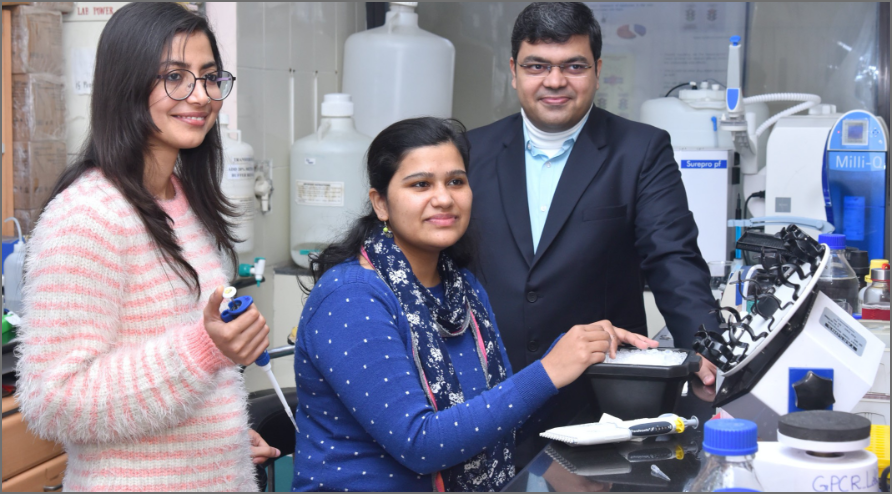How stressed blood progenitor cells stay alive
-
- from Shaastra :: vol 03 issue 01 :: Jan - Feb 2024

Blood progenitor cells kick in an emergency response to stay alive during adverse conditions.
An experiment on haematopoietic (blood-producing) progenitor cells in fruit flies and humans has shown that a survival pathway kicks in to tide over stressful periods. Researchers, led by Lolitika Mandal at the Indian Institute of Science Education and Research (IISER) Mohali, studied lymph gland cells from the fruit fly and human bone marrow cells, which are involved in coding proteins for the manufacture of blood in normal conditions (bit.ly/cell-emergency).
Micro- or miRNA strands play an important role in gene expression by controlling the relevant mRNAs. When the mRNAs are not required for coding purposes, there are elaborate pathways through which the miRNA directs the mRNA to an RISC (RNA-induced silencing complex) protein, to degrade the mRNA or, at least, put a stop to protein synthesis. The processes, part of a complicated symphony that controls blood production, are time- and energy-consuming.
“However, when there is a stress in the environment (in this case we produced it by creating a deficiency of an essential amino acid, leucine), the cell dispenses with these cycles and directs the miRNA-mRNA-RISC complex structure to the nearest autophagosome for quick destruction,” says Mandal. That’s because the cell “cannot afford to direct resources and energy into producing blood progenitor proteins at such times and needs to quickly stop that manufacture.”
In stressful conditions, cells could survive in a self-preserving state for up to eight hours.
In this way, it is able to direct the energy it has towards its own basic metabolism, even using up the nutrients released by the destruction of the complex for itself. They saw that the cell could survive in this self-preserving mode for up to eight hours. If normalcy was restored by then, it would revert to its old self, and resume the work of synthesising blood proteins. However, if the stress lasted beyond eight hours, the cell would perish.
“The same process was observed in the fruit fly as well as human cells, which means that the process has been negatively selected though evolution and embedded into the cell’s memory,” adds Mandal. “When we have lots of money, we can splurge on… indulgences but during a financial crisis, we dispense with those luxuries and focus our resources on basic survival.”
L.S. Shashidhara, Director of the National Centre for Biological Sciences in Bengaluru, notes that blood cells are energy guzzlers, and their metabolic control is critical, particularly under conditions of nutrition deficiency. “As this study elucidated the cellular mechanism on how blood progenitor cells quickly respond to stress and conserve their energy, the work could go a long way in addressing nutritional stress among humans, too, particularly among children,” he said.
Have a
story idea?
Tell us.
Do you have a recent research paper or an idea for a science/technology-themed article that you'd like to tell us about?
GET IN TOUCH














